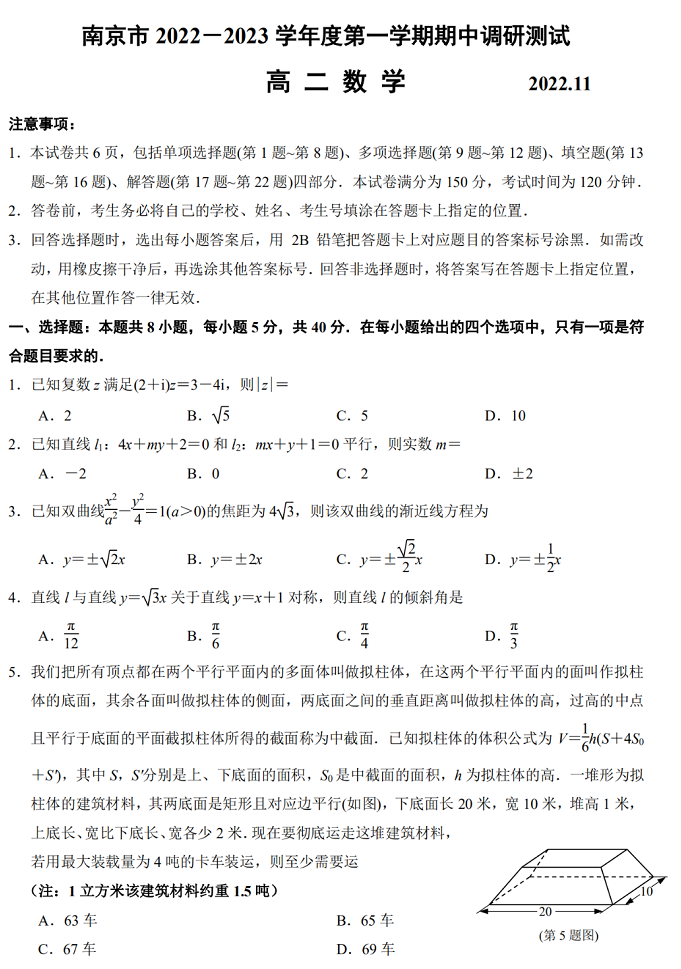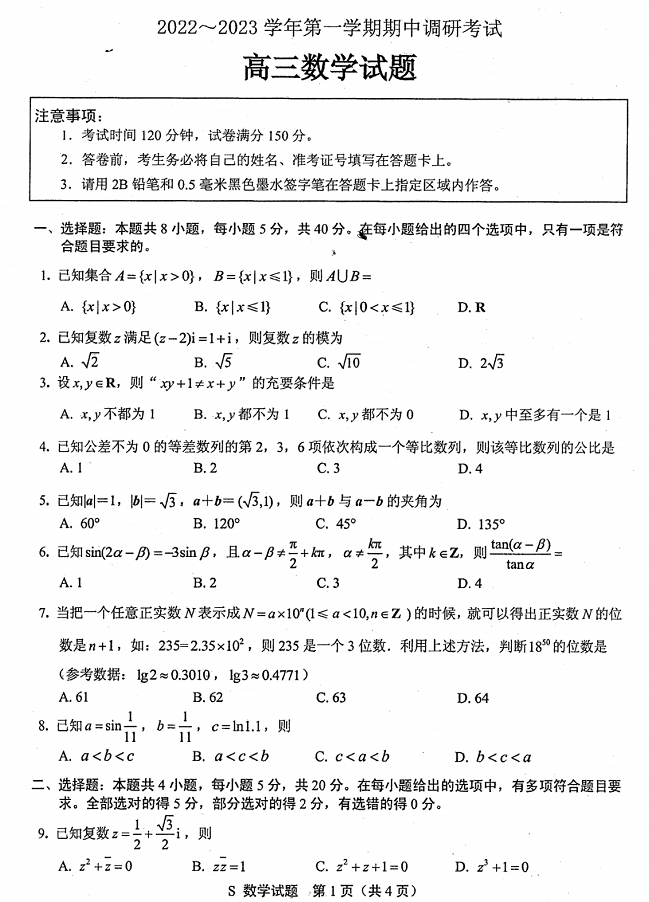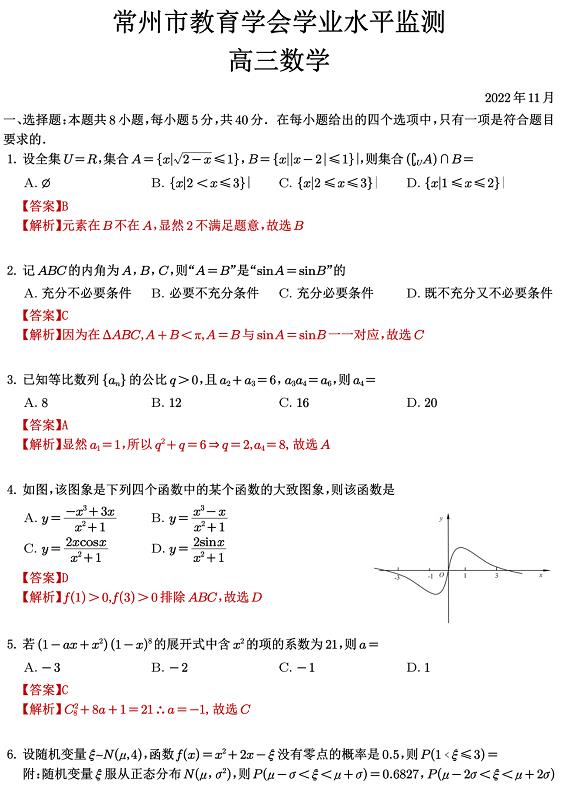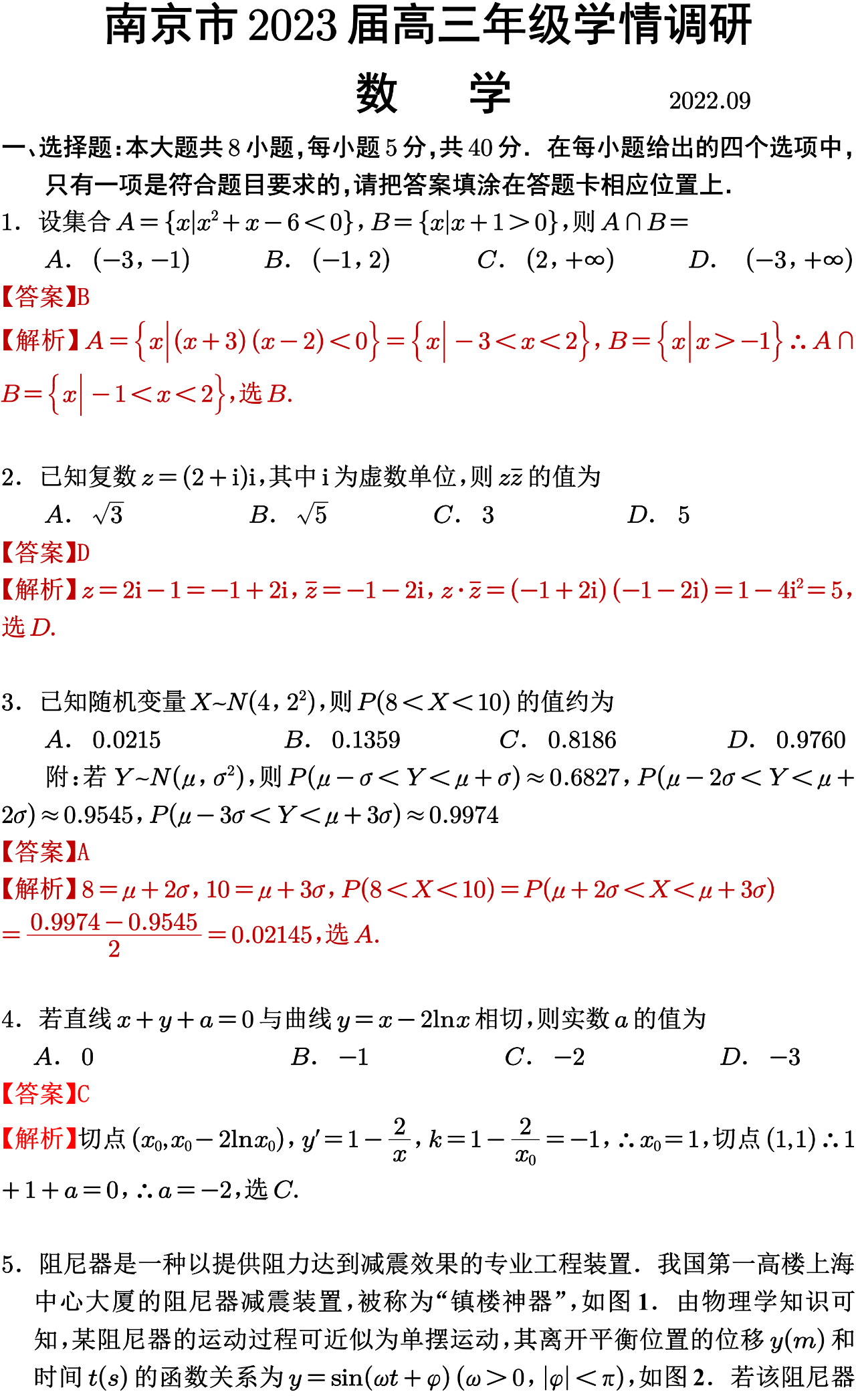英语中情态动词有什么 英语情态动词及用法大全
英语中的情态动词是考试会考的一个知识点,那么在英语中情态动词一共有多少个呢?关于情态动词的用法又是怎样的呢?请看下面的英语情态动词及用法大全。

情态动词(Modal verbs)本身有的词义,但是不能独立作谓语,只能和动词原形一起构成谓语。英语中的情态动词有十三个:
may, might; can, could; will, would; shall, should; must, need, dare, used to, ought to.
·情态动词的语法特征
1) 情态动词 不能单独做谓语,除ought 和have 外,后面只能接不带to 的不定式。
2) 情态动词没有人称,数的变化,但有些情态动词,如can、will也有一般式和过去式的变化。
3) 情态动词的“时态”形式并不是时间区别的主要标志,不少情况下,情态动词的现在式形式和过去式形式都可用来表示现在时间、过去时间和将来时间。情态动词属不及物动词,故没有被动语态。
情态动词的用法口诀:
动词原形接后面,说话语气较委婉。can "能力"may"许可",must"责任"或"义务",否定回答needn’t换。"需要"need, dare"敢"。should"应该",would"愿",have to"被迫"表客观。
can, could 和be able to的用法
1.can, be able to都可表示“能力”
Can的主语是人或物,be able to的主语是人
She can/be able to sing the song in English.
This machine can make you feel comfortable.
2.can只用于现在式和过去式(could)。be able to可以用于各种时态。
We’ll be able to finish the work soon.
I haven’t been able to see the film.
could用于表示泛指过去的能力。如:
I could read when I was four.
Although the soldier was badly wounded, he was able to tell what had happened.
She ran fast but she couldn’t /wasn’t able to catch the bus.
3.表示特定的某一过去能力或表示成功地做了某事时,只能用was/were able to, 不能用could。
He was able to flee Europe before the war broke out.
He was able to swim halfway before he got tired.
4.could不表示时态 ,表示委婉的请求,(注意在回答中不可用could)常用来表示请求别人帮助或对长辈的请求。
Could I have a look at your notebook?
Yes, you can./No, you can't.
(在作否定回答时,要注意:在拒绝长辈的请求时,不能用can not,这样显得语气太过生硬,不礼貌。但是在长辈拒绝晚辈的请求是可以用can not的。)
5.表示“惊异,怀疑,不相信”的态度(主要用于否定句,疑问句和感叹句中)
Can this news be true?
How can you be so foolish?
It can’t be Mary. She has fallen ill.
6.表示推测,译为“可能、或许”,can常用于否定句(意思是"不可能已经")和疑问句;could除用于否定句及疑问句外,还可用于肯定句(意思是"那时可能;本来可以")。
Linda didn’t catch the train. She could have caught it.
Don't worry. They could have just forgotten to phone.
may和might
1. may和might 用于一般问句中表示委婉的请求,肯定回答用may,否定用mustn’t
---May I use your pencil?
---Yes, you may./ No, you mustn’t.
2. may和might表示“可能性”, may/might + v 指现在或将来可能发生的动作情况。might暗示的可能性更小
She may not be working now. John might be at home now.
3.对过去发生的事情的可能性作出判断用may/might have done,用might比用may的可能性更小
She may/might have gone to the cinema.
They may/might not have received our telephone.
4.may 放在句首祈使句,表示祝愿。
May you succeed! May God bless you!
Will 和 would
1.will和would表示意愿、意志,可用于各种人称
If you will help me with my English, I will be very happy.
I promised that I would do my best.
2.在疑问句中,will用于第二人称,表示请求或征求意见,would则语气更委婉
Will you tell him the news as soon as he comes back?
Would you please speak again more slowly?
shall ,should 和ought to
1.shall用于第二、三人称表示允诺、警告、命令、决心等。
You shall do as I say. (命令)
Tell him that he shall have the book tomorrow. (允诺)
Nothing shall stop me doing it. (决心)
2.在疑问句中,用于第一、三人称,用来表示请求或征求意见。
Shall I open the window for you?(征求意见)
Shall he fetch some water for you?(请求)
3. should常表示劝告、建议、命令,与ought to意义相近,但ought to多表示责任、义务,语气强烈。在疑问句中通常用should代替ought to。
Young people should learn how to use computers. Every citizen ought to obey law. You ought not to go.
4.should/ought to have done表示责备或批评,意为“本应该做到…但没有做到…”,用于否定则表示“本不该…但”ought to的语气更强烈.
You should/ought to have told her the truth earlier.
She shouldn’t have left without saying a word.
must 和have to
1.Must用于一般问句中,肯定回答用must否定式用 needn’t或don’t have to,做 “不必”,mustn’t表示“禁止,不允许”
— Must I finish all assignments at a time?
—Yes, you must.
No, you needn't.
You mustn’t get down while the car is still moving.
2.表示“需要”这个意思时,must 和have to 稍有区别。must着重说明主观看法,have to 强调客观需要。另外,have to 能用于更多时态。
I don’t like this TV set. We must buy a new one. There was no more bus. They had to walk home.
3.must表示对某人某事的猜测, 作“准是”,“” ,一般用于肯定句中。对过去发生的事情作肯定判断用must have done
You must be the new teacher.
He must be joking. There is nobody here. They must have all gone home.
4. Must表示“偏要,硬要”,指做令人不快的事情
He must come and worry her with question, just when she was busy cooking the dinner. Of course,after I gave her my advice,she must go and do the opposite。
- 热门课程
- 热门资讯
- 热门资料
- 热门福利
-
 一模成绩450分还有救吗?怎么夯实基础?高三年级刚结束了一模考试,有人想知道,一模二模三模哪次的分数和高考最接近,它们和高考成绩都有什么关系呢?有的同学一模考了450就开始灰心了,小编今天就帮你分析如何提分!
一模成绩450分还有救吗?怎么夯实基础?高三年级刚结束了一模考试,有人想知道,一模二模三模哪次的分数和高考最接近,它们和高考成绩都有什么关系呢?有的同学一模考了450就开始灰心了,小编今天就帮你分析如何提分! -
 语文成绩拖后腿?来看看高考状元的独家提分方法!到了高中,大家会发现语文是成绩最稳定的科目,但也是提分最难的科目!今天,小语给大家分享一位高考状元的独家经验,希望对大家有所帮助!
语文成绩拖后腿?来看看高考状元的独家提分方法!到了高中,大家会发现语文是成绩最稳定的科目,但也是提分最难的科目!今天,小语给大家分享一位高考状元的独家经验,希望对大家有所帮助! -
 初三英语58,离中考仅有4个月,还有救吗?最近后台有位家长跟小编多次留言了,总觉得自己孩子的英语成绩太差了,以前好歹也能考到70左右,现在这一次考试居然只考了58,家长十分焦虑,想知道马上快中考了,现在4个月给孩子报班还能提升成绩不,本期小编就来好好聊聊!
初三英语58,离中考仅有4个月,还有救吗?最近后台有位家长跟小编多次留言了,总觉得自己孩子的英语成绩太差了,以前好歹也能考到70左右,现在这一次考试居然只考了58,家长十分焦虑,想知道马上快中考了,现在4个月给孩子报班还能提升成绩不,本期小编就来好好聊聊! -
 初三历史怎么才能学好?西安领军教育怎么样?初三历史学习很多学生总表示学不明白,时间线还有大事件总是及混淆,这种情况非常影响自己得成绩,想要提高历史成绩得宝子们,今天就来试试这个技巧吧!
初三历史怎么才能学好?西安领军教育怎么样?初三历史学习很多学生总表示学不明白,时间线还有大事件总是及混淆,这种情况非常影响自己得成绩,想要提高历史成绩得宝子们,今天就来试试这个技巧吧!
-
 南京市2022-2023年高二上学期期中考试数学试卷含答案南京市高二学生进行了2022-2023年第一学期中考试,小编整理到了这次考试的数学试卷及答案,在这篇文章里面分享给同学们。咱们高二学生或者是江苏其他城市的高二学生们也可以看一看、做一做,对自己的知识进行一个复习,对自己做一个检测。 南京市2022-2023年高二上学期期中考试数学试卷
南京市2022-2023年高二上学期期中考试数学试卷含答案南京市高二学生进行了2022-2023年第一学期中考试,小编整理到了这次考试的数学试卷及答案,在这篇文章里面分享给同学们。咱们高二学生或者是江苏其他城市的高二学生们也可以看一看、做一做,对自己的知识进行一个复习,对自己做一个检测。 南京市2022-2023年高二上学期期中考试数学试卷 -
 江苏省连云港市2022-2023年上学期高三期中考试数学试卷及答案近日江苏的很多城市的高三学校都进行了2022-2023年上学期期中考试,主要是对高三学生从开学到现在这么长时间学习情况的一个调查。下面是江苏省连云港市2022-2023年上学期高三期中考试数学试卷及答案,伊顿教育小编整理出来跟大家进行分享。 江苏省连云港市2022-2023年上学期高三
江苏省连云港市2022-2023年上学期高三期中考试数学试卷及答案近日江苏的很多城市的高三学校都进行了2022-2023年上学期期中考试,主要是对高三学生从开学到现在这么长时间学习情况的一个调查。下面是江苏省连云港市2022-2023年上学期高三期中考试数学试卷及答案,伊顿教育小编整理出来跟大家进行分享。 江苏省连云港市2022-2023年上学期高三 -
 常州市2023届高三期中联考数学试卷及答案解析近期江苏省一些城市的高三学生们已经开始了期中考试,下面是小编整理的常州市2023届高三期中联考数学试卷及答案解析,虽然考试已经考完了,但是你们还是可以看再看一下的。另外咱们江苏其他城市的高三学生们也可以做一下常州市今年高三期中联考的数学试卷,看看自己得多少分。 常州市2023届高三期中
常州市2023届高三期中联考数学试卷及答案解析近期江苏省一些城市的高三学生们已经开始了期中考试,下面是小编整理的常州市2023届高三期中联考数学试卷及答案解析,虽然考试已经考完了,但是你们还是可以看再看一下的。另外咱们江苏其他城市的高三学生们也可以做一下常州市今年高三期中联考的数学试卷,看看自己得多少分。 常州市2023届高三期中 -
 2023南京高三零模 南京市2023届高三零模数学试卷及答案解析随着高三开学,南京市迎来了高三零模考试,正式进入高三的模考,这次零模考试不知道广大高三学子们考的怎么样呢?以下是小编为大家整理的2023届南京市高三零模考试的数学试卷及答案解析,欢迎大家来查漏补缺。 2023南京高三零模 南京市2023届高三零模数学试卷及答案解析
2023南京高三零模 南京市2023届高三零模数学试卷及答案解析随着高三开学,南京市迎来了高三零模考试,正式进入高三的模考,这次零模考试不知道广大高三学子们考的怎么样呢?以下是小编为大家整理的2023届南京市高三零模考试的数学试卷及答案解析,欢迎大家来查漏补缺。 2023南京高三零模 南京市2023届高三零模数学试卷及答案解析


















 All right reserved
All right reserved
